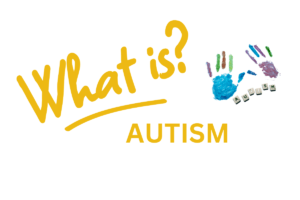Introduction: Autism Definition in Psychology
Autism Definition in Psychology is a crucial aspect of understanding Autism Spectrum Disorder (ASD) . Autism spectrum disorder (ASD) is a complex developmental condition that affects individuals in varying degrees. From a psychological perspective, understanding autism is crucial in providing the necessary support and interventions for those affected. In this article, we will explore five key aspects of autism’s definition in psychology, delving into how the condition is perceived, diagnosed, and treated.

What is Autism Spectrum Disorder (ASD)?
Autism spectrum disorder is a neurological and developmental disorder that begins in early childhood and persists throughout an individual’s life. Psychologists define autism based on the challenges it presents in social interaction, communication, and behavior. ASD is referred to as a spectrum because the symptoms and their severity can vary significantly from one person to another. This means that while some individuals may require substantial support, others may be able to live independently.
ASD is categorized as a developmental disorder because the symptoms generally appear in the first few years of life. However, the definition of autism in psychology emphasizes that it is a lifelong condition with no known cure, but with proper support, individuals can lead fulfilling lives.
For those seeking Best Autism Treatment, consider visiting:
1. Social Interaction and Communication Challenges
One of the hallmark features of autism, as defined by psychologists, is difficulty in social interaction. Individuals with autism often struggle to understand and respond to social cues, such as body language, facial expressions, and tone of voice. They may have difficulty forming relationships, which is why they are often seen as being detached or isolated. However, many people with autism express a desire to connect with others, even if they find it challenging.
Communication challenges are another key aspect of autism. Some individuals may have limited verbal skills, while others may exhibit repetitive speech patterns or unusual language usage. The psychology of autism emphasizes the need to provide individuals with alternative communication methods, such as sign language or augmentative communication devices, to aid their interaction with others.
2. Restricted and Repetitive Behaviors
According to the , another key characteristic is the presence of restricted and repetitive behaviors. These can manifest in various ways, such as repetitive movements (e.g., hand-flapping), rigid adherence to routines, or an intense focus on specific interests. Psychologists explain that these behaviors may provide a sense of comfort and predictability for individuals with autism, helping them manage the overwhelming sensory information they experience.
It is essential to recognize that repetitive behaviors are not always negative. In fact, many people with autism have turned their focused interests into careers or creative outlets. However, rigid routines can sometimes limit flexibility, making it challenging for individuals to adapt to changes in their environment.
3. Sensory Processing Differences
One often overlooked aspect of autism is how individuals process sensory information. Psychologists define sensory processing differences as either hypersensitivity or hyposensitivity to stimuli, such as sound, light, touch, or taste. For example, someone with autism may become overwhelmed by loud noises or bright lights, while others may seek out intense sensory experiences, such as spinning or touching certain textures.
Sensory processing difficulties can greatly impact a person’s ability to navigate the world, making everyday tasks more challenging. In the field of psychology, understanding and addressing these sensory issues is critical for creating supportive environments that accommodate the unique needs of individuals with autism.
4. Cognitive and Intellectual Variability
The cognitive abilities of individuals with autism can vary widely. Some individuals may have intellectual disabilities, while others possess average or even above-average intelligence. The psychological definition of autism recognizes this variability, noting that some individuals may excel in specific areas, such as mathematics, music, or art, while struggling with tasks that require abstract thinking or problem-solving.
Psychologists emphasize the importance of focusing on strengths rather than limitations. By identifying and nurturing the areas in which individuals with autism excel, professionals can help them achieve their full potential and improve their quality of life.
5. Early Diagnosis and Interventions
The psychological definition of autism underscores the importance of early diagnosis and intervention. While there is no cure for autism, early interventions such as behavioral therapy, speech therapy, and occupational therapy can significantly improve outcomes. Psychologists recommend that parents and caregivers seek evaluation if they notice early signs of autism, such as delayed speech, lack of eye contact, or repetitive behaviors.
Government and medical authorities, such as the Centers for Disease Control and Prevention (CDC) and the National Institute of Mental Health (NIMH), provide guidelines for diagnosing and managing autism.
Conclusion
In psychology, the definition of autism highlights the diversity of experiences and abilities within the autism spectrum. Understanding autism from a psychological perspective helps pave the way for effective interventions and support systems that allow individuals with autism to thrive. By recognizing and addressing the unique needs of each person, we can create a more inclusive and supportive society for those with autism.
For more information and resources, visit the Wikipedia page on Autism or the Wikipedia page on Autism Spectrum.